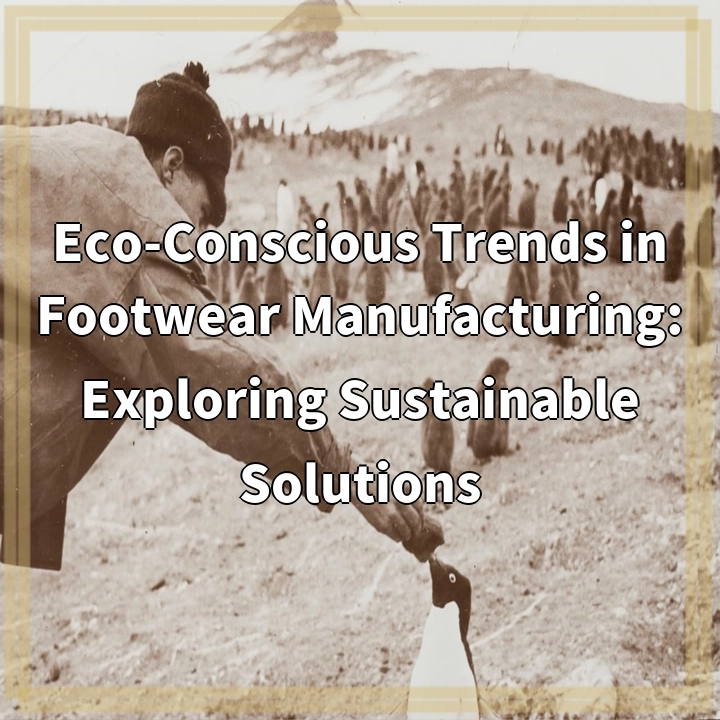
What it is:
Eco-conscious trends in footwear manufacturing refer to the growing movement within the industry to adopt sustainable practices throughout the production process. This includes sourcing environmentally-friendly materials, reducing waste and carbon emissions, and prioritizing worker welfare.
Real-World Problems:
1. Environmental Impact:
In the traditional footwear manufacturing industry, the extraction of raw materials, such as leather and synthetic fabrics, can have a significant environmental impact. Deforestation, water pollution, and chemical usage are some of the issues associated with sourcing these materials.
2. Waste and Pollution:
Footwear manufacturing generates a significant amount of waste, both in terms of excess materials and by-products such as chemical dyes and glues. Improper disposal of these waste products can lead to pollution of waterways and soil, as well as contribute to greenhouse gas emissions.
3. Supply Chain Transparency:
The footwear industry has faced criticism for poor supply chain transparency, particularly in relation to labor practices. Issues such as unfair wages, unsafe working conditions, and exploitation of workers have been reported in various regions, highlighting the need for increased accountability and transparency.
4. Consumer Awareness:
One of the challenges in the footwear industry is raising consumer awareness about the environmental and social impact of their purchasing decisions. Many consumers may not be aware of the harmful practices associated with traditional shoe production and may not actively seek out eco-friendly alternatives.
5. Cost and Accessibility:
Eco-conscious footwear options are often perceived to be more expensive than their conventional counterparts. This cost difference can act as a barrier for consumers who may not have the financial means to prioritize sustainable products. Additionally, limited availability and accessibility of eco-friendly footwear options can further hinder widespread adoption.

Solutions:
1. Sustainable Material Sourcing:
Footwear manufacturers can address the environmental impact by sourcing sustainable and renewable materials, such as organic cotton, recycled polyester, and plant-based alternatives. This reduces the reliance on resource-intensive materials and helps preserve ecosystems.
2. Waste Reduction and Recycling:
Implementing strategies to minimize waste is crucial. Manufacturers can optimize material usage, find innovative ways to recycle or upcycle waste, and explore biodegradable alternatives for components like glues and dyes. This helps reduce pollution and conserve resources.
3. Ethical Supply Chain Practices:
Ensuring transparency and accountability throughout the supply chain is vital. Brands should engage in responsible sourcing, fair labor practices, and support ethical working conditions. Third-party certifications and auditing systems can help verify and promote responsible practices.
4. Education and Awareness:
Increasing consumer awareness about sustainable footwear options is essential. Brands can educate consumers about the impact of conventional shoe production, the benefits of eco-friendly materials, and the importance of making conscious purchasing decisions. Marketing campaigns and transparent communication can drive demand for sustainable options.
5. Affordability and Accessibility:
To overcome cost barriers, manufacturers can explore cost-effective alternatives and scale up production to lower prices. Collaboration between brands and retailers can increase the availability and accessibility of sustainable footwear options, making them more accessible to a wider range of consumers.















